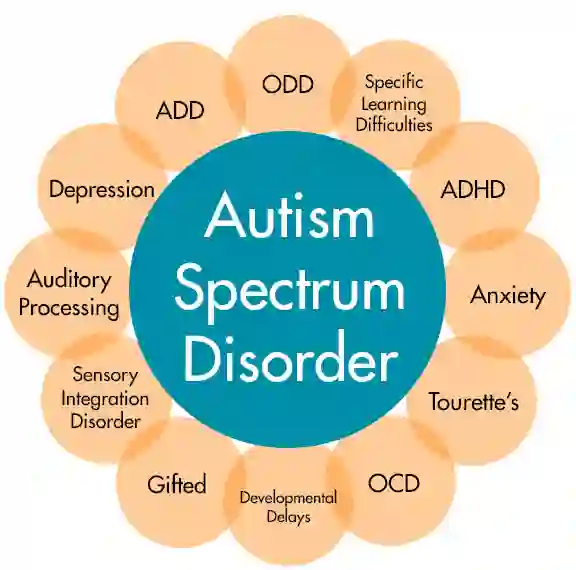Autism Spectrum Disorder (ASD) is a neuro developmental disorder that manifests in children by the age of three years, with specific delay in social, communicative, cognitive and behavioural abilities.
It is approximately four times more common in boys than girls. Autism is currently diagnosed through close observation of a child’s symptoms and development. The learning, thinking and problem solving abilities of children with autism can range from gifted to severely challenged.
Different children can be affected in very different ways, but they share two main categories of symptoms:
- Difficulty with social communication and social interactions
- Repetitive behaviours and restricted or unusual interests, including sensory symptoms such as heightened sensitivity to noise, touch or smell.
Children with Autism exhibit following characteristics:
- Avoid eye contact, do not like to be cuddled and prefer to stay alone
- Do not point to objects to show interest, or look at objects when pointed
- Have trouble understanding the feelings of others or expressing their needs
- Language is delayed may repeat words or phrases and actions again and again
- Have trouble in adapting to new environment or routines
- Do not play the ‘pretend’ games, may cling to certain objects
- Respond to other sounds but not when somebody is talking to them
- Sleep related problems, constipation
- May have seizures
Role of the parent in Autism Spectrum Disorder and Management:
Most important is keeping a healthy lifestyle with consistent routines, the same things that help all children. Here are a few of our recommendations for parents and caretakers:
- Maintain a consistent routine, both at home and at school.
- Offer meals and snacks at around the same time each day.
- Follow a structured bedtime routine that quiets the mood, including lowering the lights, limiting screen time and doing calming activities..
- View movies together with your child. Learn how to use media as a teaching tool for social skills.
- Prepare your child before outings and special events, so he or she knows what to expect. Use pictures and role play to explain what’s going to happen.
- Try to stay calm if something unexpected happens, because children can usually pick up on a parent’s anxiety.
There is no cure for Autism, however early intervention treatment can improve the child’s development. All children with autism need appropriate educational and behavioural therapy. Other therapies include speech therapy, occupational therapy and social skills training .Some children also need medication to help with certain symptoms like trouble focusing or aggressive behaviour. In most situations, behaviour therapy is the best way to help with behaviours.
For more information on Autism, its diagnosis and management please contact our Paediatric Neurologist at our centres of Wockhardt Hospital. At Wockhardt hospital our team manages and treats children with sensory issues or behavioural issues associated with autism through a supportive integrated approach. Our team of doctors have vast experience in managing all paediatric neurological in dealing with children from birth to young adulthood. Apart from autism we deal with a variety of conditions. Our neurologists deal with children who have seizures, head injuries, or muscle weakness, learning disabilities and attention deficit hyperactivity disorder (ADHD).




